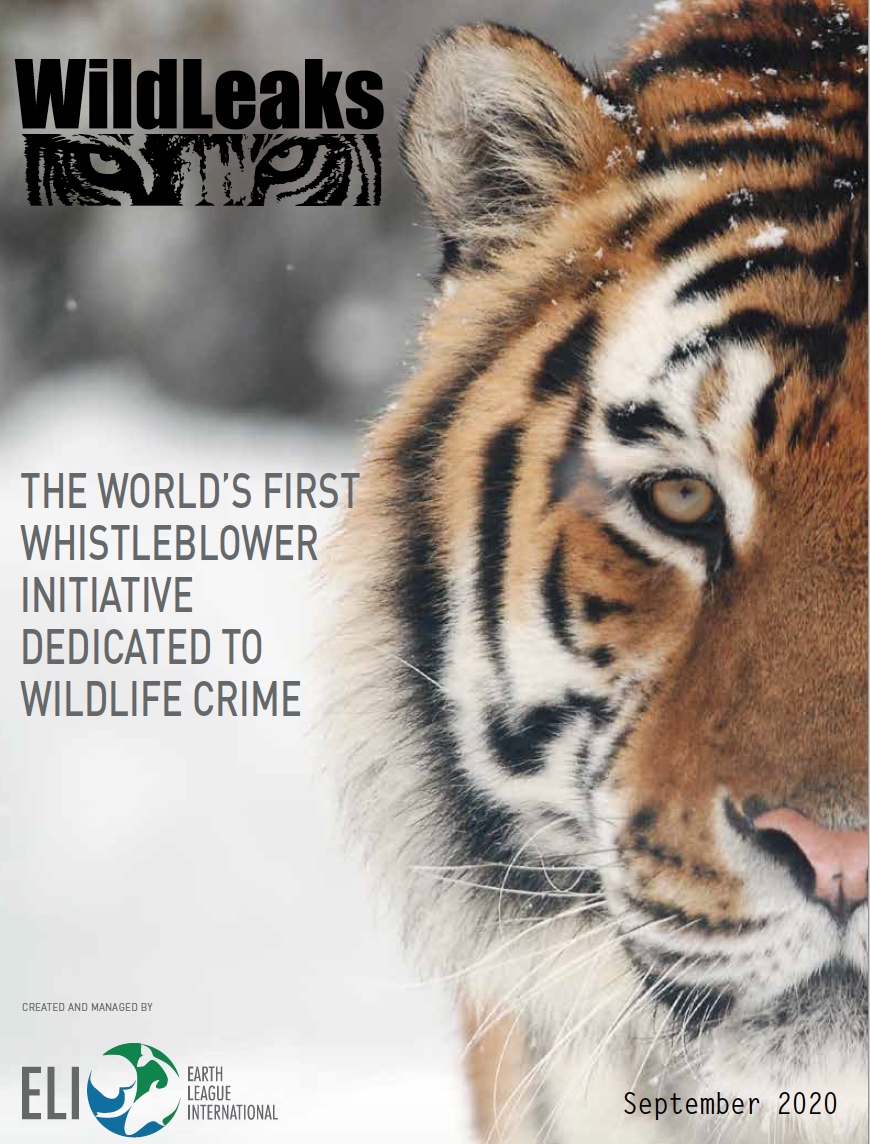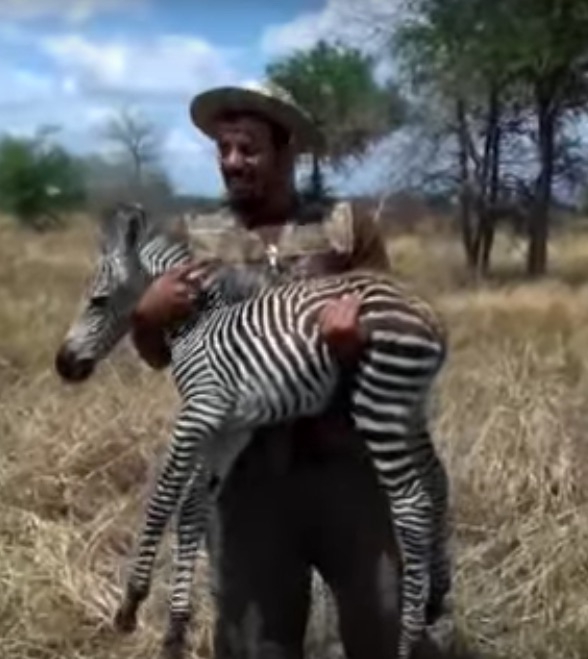THE FIRST REPORT OF WILDLEAKS
THE WORLD’S FIRST WHISTLEBLOWER INITIATIVE DEDICATED TO ENVIRONMENTAL/WILDLIFE CRIME
WHISTLEBLOWING APPLIED TO CONSERVATION
September 8, 2020: Six years after the launch of the WildLeaks Project, Earth League International (ELI) is thrilled to release its first comprehensive report on this ground-breaking initiative. ELI realized, years ago, that the most crucial information about environmental/wildlife crime, and environmental crime in general, is in the hands of untapped sources working and living around the world, both inside and outside the criminal networks facilitating environmental/wildlife crime. So in response, ELI launched WildLeaks in 2014, a “safe space” online where anyone, whistleblowers around the world, can share this crucial information securely, anonymously, and with very limited personal risk.
This report introduces the reader to whistleblowing in the context of environmental crime. More specifically, the reader is introduced to WildLeaks and the potential for whistleblowers to play a critical role in fighting back against environmental crime. The purpose of the report is to educate a global population about the potential of the WildLeaks platform, provide information on the submissions received to date, and identify possible actions that would allow ELI to enhance that potential.
The Earth League International recognized a needed avenue for people in the know to safely report wildlife crime. Operating in the field, ELI became aware that the volume of precious information about environmental crime is in the hands of people working and living around the world was huge, but largely untapped. Many of those people were not willing, or motivated, to share information for many reasons, but primarily out of fear for their own personal security, as well as a lack of trust in local authorities. Recognizing this enormous potential value, ELI, in collaboration with The Hermes Center for Transparency and Digital Rights and GlobaLeaks, began working on a way to facilitate the sharing and collection of sensitive information. The result is WildLeaks, a secure Tor-based online submission and data management system.
According to Mr. Crosta, the co-founder of ELI, “wildlife crime very often goes undetected and unchallenged because people do not or cannot speak up about it, so whistleblowers can play a crucial role in fighting back, creating awareness, and contributing to justice. So with this report, we hope to show the potential of WildLeaks and to recruit new partners to massively launch the project around the world.”
In 6 years of the WildLeaks Project, despite the lack of funding to properly advertise it, over 300 submissions have been received, of which roughly a quarter were assessed as interesting, a dozen instigated or contributed to investigations, and over 25 were reported to partner NGOs, law enforcement authorities, or media partners, or a combination thereof. WildLeaks has received information about environmental/wildlife crime from over 30 countries, including China, Hong Kong, South Africa, Zimbabwe, Nigeria, Mozambique, Kenya, Tanzania, Lebanon, India, Vietnam, Laos, Indonesia, the U.S., Mexico, Costa Rica, Panama, Argentina, Brazil, Finland and Russia,
Here are a just a few examples of WildLeaks submissions:
- Leak showing a forged bill of lading for multiple shipments of “cotton” from the Mombasa Port to Asia – Received in June 2014, this leak highlights not only the crucial role in wildlife trafficking played by a few African seaports, but also how a bill of lading can be forged to hide the real content of shipping containers and the real destination. ELI decided to share this leak with U.S. authorities. The authorities managed to determine that this bill of lading for a shipment of three containers on a single ship to Thailand was actually hiding six containers on three ships to three different Asian ports.
- Leak identifying an orangutan, gibbons, and sugar gliders being shipped from Bangkok to Oman – This leak highlights the well-known illegal live “pet” trade of wildlife from Asia to the Emirates and Saudi Arabia. ELI shared this leak with U.S. authorities, giving them the difficulty of finding reliable law enforcement agencies in Oman and Dubai.
- Leak with videos of Illegal trophy hunting activities by Green Mile Safari in Tanzania – In May
2016, WildLeaks received multiple videos showing illegal and cruel examples of trophy hunting in Tanzania, committed by the safari company Green Mile. The shocking videos by Green Mile showed hunting with automatic weapons, having children hunt with automatic weapons, gunning down fleeing animals from moving cars, capturing baby animals and torturing dying ones, and using bait and lights at night to attract animals – all illegal acts. Following WildLeaks’ #StopGreenMile campaign and pressure from other NGOs, Tanzania did revoke Green Mile Safari’s hunting license in August 2019.
- Leak regarding wildlife trafficking and organized crime in Suriname – WildLeaks received personal testimony from a well-informed source identifying local wildlife traffickers in Suriname, as well as multiple sources describing the local Chinese black-market connections dealing in jaguars. All of these sources were afraid to communicate what they knew publicly or to local authorities – WildLeaks offered a safe and anonymous alternative.
What we do with the information
The information received through WildLeaks serves to accomplish its mission: to receive and evaluate anonymous information and tips regarding environmental/wildlife crime and transform that information into concrete action. To do so, ELI works with a network of experts that includes scientists, environmental lawyers, legal and criminal justice experts, and former intelligence officers, to evaluate and validate each WildLeaks submission and determine possible further action that could include:
- Beginning or continuing an investigation with internal ELI teams and/or in collaboration with trusted partners;
- Sharing information with trusted contacts within select law enforcement agencies and/or with other NGOs; and
- Sharing the information with media partners.
Whistleblowing through WildLeaks has grown organically into the important second pillar of ELI’s novel, three-pillar approach to combatting environmental crime and exploitation. Those pillars also include Intelligence & Analysis and Media Production & Public Outreach.
Mr. Crosta states that: “We grew this novel approach to conservation to address three of the most important facets of the war against environmental crime; to gather first-hand knowledge of the problem, empower people from around the world to share information on environmental crime, and inspire the public to action through current, strong narratives about environmental crime and exploitation.”
Download here the WildLeaks Report






